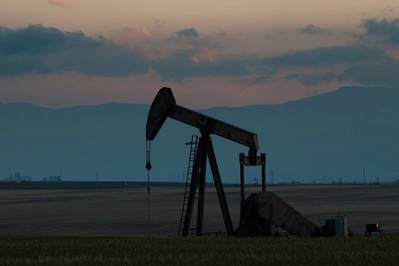U.S. energy firms added oil rigs for a record 22nd week in a row in a year-long drilling recovery but the pace of those additions has slowed in recent months as crude prices dropped to 2017 lows despite OPEC-led efforts to end a global supply glut.
Drillers added six oil rigs in the week to June 16, bringing the total count up to 747, the most since April 2015, energy services firm Baker Hughes Inc said on Friday.
That compares with 337 rigs in the same week a year ago.
The pace of those additions, however, has slowed over the past two months with the decline in crude prices.
U.S. crude futures were trading near a seven-month low at around $44.70 a barrel on Friday, putting the front-month on track to decline for a fourth consecutive week, on widespread evidence of a fuel glut despite efforts led by the Organization of the Petroleum Exporting Countries (OPEC) to tighten the market.
After agreeing in December to cut production by around 1.8 million barrels per day (bpd) from January to June, OPEC and other producers on May 25 agreed to extend those cuts to the end of the first quarter.
Growth in oil supply next year is expected to outpace an anticipated pick-up in demand that will push global consumption above 100 million bpd for the first time, the International Energy Agency said this week.
The failure of those OPEC-led cuts to tighten the market and keep prices higher, however, has led shale drillers to reduce their hedges, leaving them vulnerable to falling oil prices.
At the same time, prominent hedge funds said they have reduced the size of their positions in shale firms in the Permian, the largest oilfield in the United States.
U.S. shale oil production is expected to rise for a seventh consecutive month in July, according to a forecast this week from the U.S. Energy Information Administration.
Daily oil output in North Dakota, meanwhile, rose 2 percent in April.
Futures for the balance of 2017 were trading around $45 a barrel, while calendar 2018 was fetching about $47 a barrel.
Analysts at Simmons & Co, energy specialists at U.S. investment bank Piper Jaffray (PJR.SG), this week forecast the total oil and gas rig count would average 883 in 2017, 1,101 in 2018 and 1,212 in 2019. Most wells produce both oil and gas.
That compares with an average of 809 so far in 2017, 509 in 2016 and 978 in 2015. If correct, Simmons' 2019 forecast would be the most since 2014 when there were 1,862 active rigs. The rig count peaked in 2012 at 1,919, according to Baker Hughes.
(Reporting by Scott DiSavino; Editing by Marguerita Choy)








